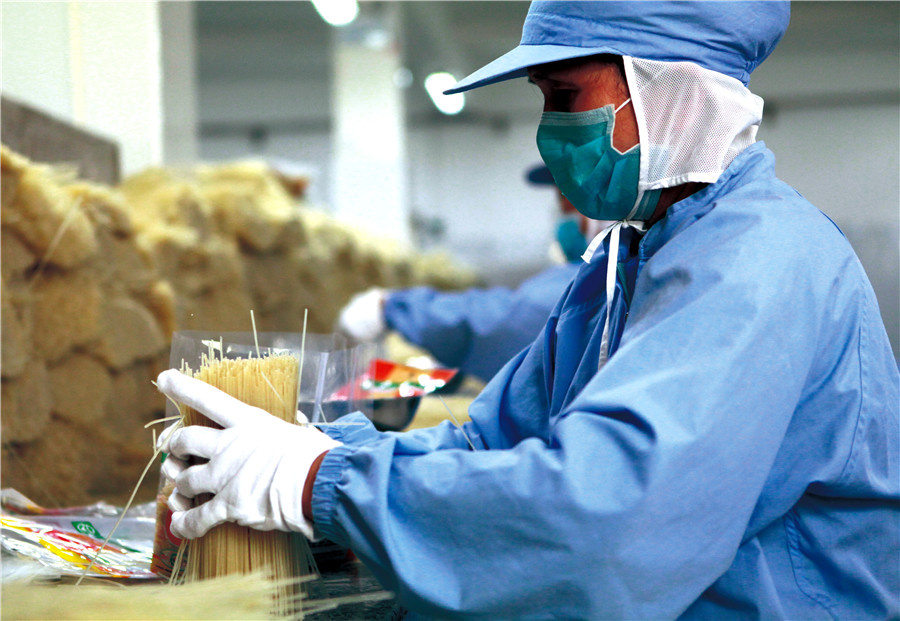Noodle maker's revamp is a recipe for success


A new goal
"Our goal was to produce elastic rice noodles, suitable for everybody, even those with stomach problems," Guo said.
The team discovered that the problems were caused by the fermentation process, an essential part of the production cycle in which sugar is consumed in a totally oxygen-deprived environment. In addition to partially processing the noodles, the procedure produced acids and gases that caused stomach upsets.
Because the noodles were only partially processed by the procedure, they became less chewy and therefore less appetizing, and they also broke up in boiling water, Guo said.
The team overhauled production by abandoning the traditional fermentation method and devising a new one from scratch that would avoid stomach upsets.
They soaked the rice, mashed it and pressed it into noodles at a high temperature. Initially, the results were disappointing because the unfermented rice was only 10 percent processed and the noodles still broke up in boiling water.
After numerous tests, the team discovered that when the rice was crushed into particles small enough to pass through a 0.25 millimeter sieve and then pressed, the fermentation method raised the processing level to about 75 percent.
Then, it was time to go back to the drawing board to find a way to process the noodles thoroughly. The raw noodles were placed in an enclosed steam room at a specific temperature and humidity for eight hours, leaving them 85 percent processed. Two minutes of extra steaming raised the level to 95 percent.
Still, the product wasn't perfect. "We achieved the level of processing we wanted, but when the noodles were taken out of the steam room, we were all stunned," Guo said.
The noodles had hardened and fused together, so the workers tried unsuccessfully to prise them apart by hand. "Even if we had used all our strength until our hands turned red, we still would not have been able to separate the noodles," Guo recalled.
The workers tried everything they could think of, including covering the noodles with a cotton quilt soaked in water and using an induction cooker in the hope the steam would soften them. Nothing worked.
Months later, as the team members' patience was at breaking point, one of them vented his frustration by pitching a handful of the rice noodles into a vat of cold water.
The fused, rock-hard noodles separated and, crucially, did not snap when cooked in hot water. They even held their shape when a wooden bread comb was run through them.
The factory adapted the method, and now uses a machine with comb-shaped spurs to separate the noodles.
During the three-year experimental period, Guo worked from 7:30 am to 2 am for just 15 yuan a month.
She had almost no time to eat or sleep. She developed stomach problems and her weight dropped to 45 kilograms.
Her dorm closed before midnight, so she often had to squeeze through the iron bars on the front door to gain entry.
However, the intense schedule didn't beat Guo, and she never regretted joining the team, even during the toughest times.
When talking about her daughter, her voice softened: "She's the one I owe the most."



































